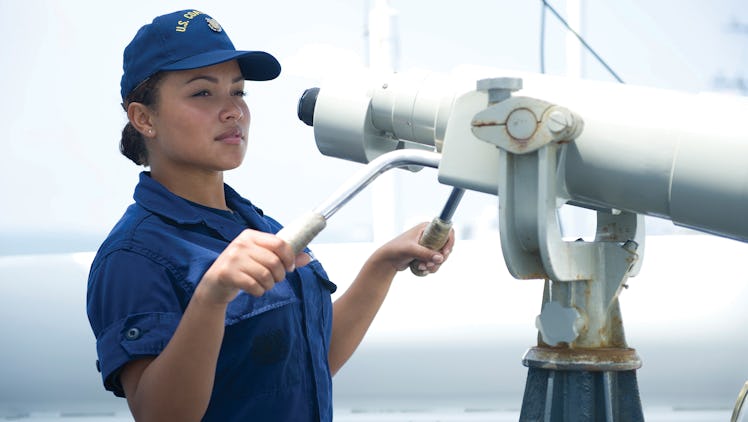
5 Surprising Career Paths To Explore Within The U.S. Coast Guard
As a 19-year-old, I had a major realization: My holdover part-time job from my teenage years was not a viable career path for my nearly adult self. I needed to start figuring out a next step, and fast! Throughout high school I enjoyed the many creative electives my school had to offer, and while I found ceramics and weightlifting to be very fun diversions, they didn’t provide an on-ramp to any sort of professional vocation. In short, I was caught flat-footed without a real direction in mind.
I wish I knew more at the time about the possibility of serving in the U.S. Coast Guard. I had considered a position in the armed forces, but I didn’t fully understand the myriad career paths you can prepare for through Coast Guard service. I ended up going to college instead, prolonging the inevitable career decision for another four years (and taking many more dead-end electives along the way).
Had I known then what I know now, I would have understood that the U.S. Coast Guard is not just the federal agency responsible for protecting and defending more than 100,000 miles of U.S. coastline and waterways. It’s also an incredible professional resource, offering a wide variety of positions in everything from rescue operations to food service. Upon joining the service, Coast Guard members are given several weeks of classroom training followed by hands-on experience in their chosen field, allowing them to gain professional skills that might take years to gain through entry-level positions in other organizations.
If you’re anything like I was as a young person exploring possible career paths, you owe it to yourself to check out the U.S. Coast Guard. Keep reading to learn about some of the most unexpected career paths the Coast Guard can help you explore.
1. Operations
Since businesses and organizations must constantly adapt their processes to ensure efficiency, the role of Operations Manager is in-demand across the majority of fields. Coast Guard training for Operations Specialists includes training in the use of navigation systems, communications, a variety of software applications, and the planning and execution of search and rescue operations. These trainings prepare members for a whole host of operations jobs, with special preparation for careers in Emergency Preparedness and Homeland Security.
2. Food Service
With over 56,000 active members, the Coast Guard has a lot of mouths to feed! Supplying food for service members — as well as for civilians in times of need — requires a massive team of personnel with a broad range of food service interests and backgrounds. If you’re a foodie who is interested in learning trade skills under often extraordinary circumstances, the Coast Guard is a great option for you.
3. Marine Safety
From protecting our waters from oil spills to performing safety and security inspections on board marine vessels, these Coast Guard specialists combine environmental science with disaster response. Training for this role begins with a 12-week immersive course in how to investigate oil and hazardous-material pollution incidents, among many other subjects. This training prepares service people for such civilian jobs as marine safety specialist, hazardous material specialist, and oil and hazardous material spill responder.
4. Electronic Engineering
Are you the kind of person who spent their childhood taking apart computers just to see how they work? There is a high demand for folks like you in the Coast Guard, especially through Electronics Technician positions. Once enlisted, you can expect to receive training in the repair and maintenance of antenna systems, GPS receivers, radar systems, and integrated control systems. Upon completing their service, electronics technicians are prepared for professional roles like guidance systems specialists, data and satellite communications, and radio, TV, and radar repair.
5. Machinery Mechanics
One of the Coast Guard’s most in-demand positions is Machinery Technician (MK) — a position so vital that they’re given assignments on all 1,600 Coast Guard boat in operation. This role is responsible for having an in-depth understanding of machinery operation and maintenance of internal combustion engines, HVAC systems, hydraulics, and electronics. Aside from essential technical skills, MKs also get valuable leadership experience, as they are responsible for managing teams under high-pressure situations.
Aside from these great career opportunities, there’s one more thing you should know: As the smallest branch of the military, every job in the Coast Guard is important, which means that every task you perform gets noticed. This makes the Coast Guard a great place to advance your career — even while you’re still in the service. Those who excel at their roles inside the Coast Guard get better pay, additional responsibilities, and even more exciting and diverse missions.
Start exploring the benefits of joining the Coast Guard today!